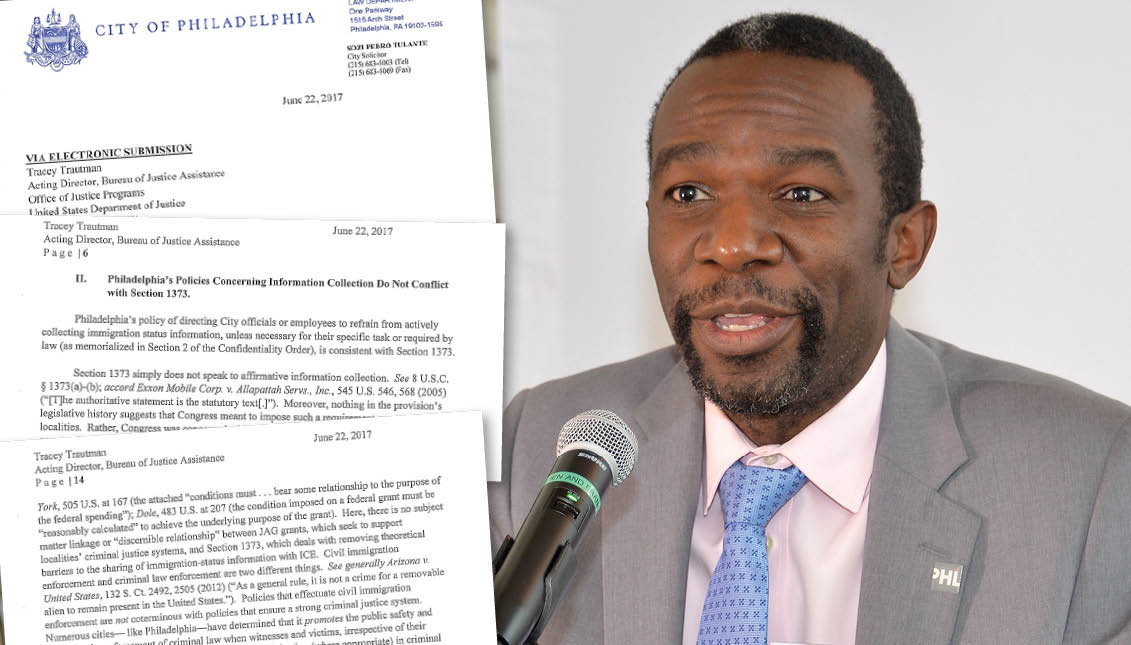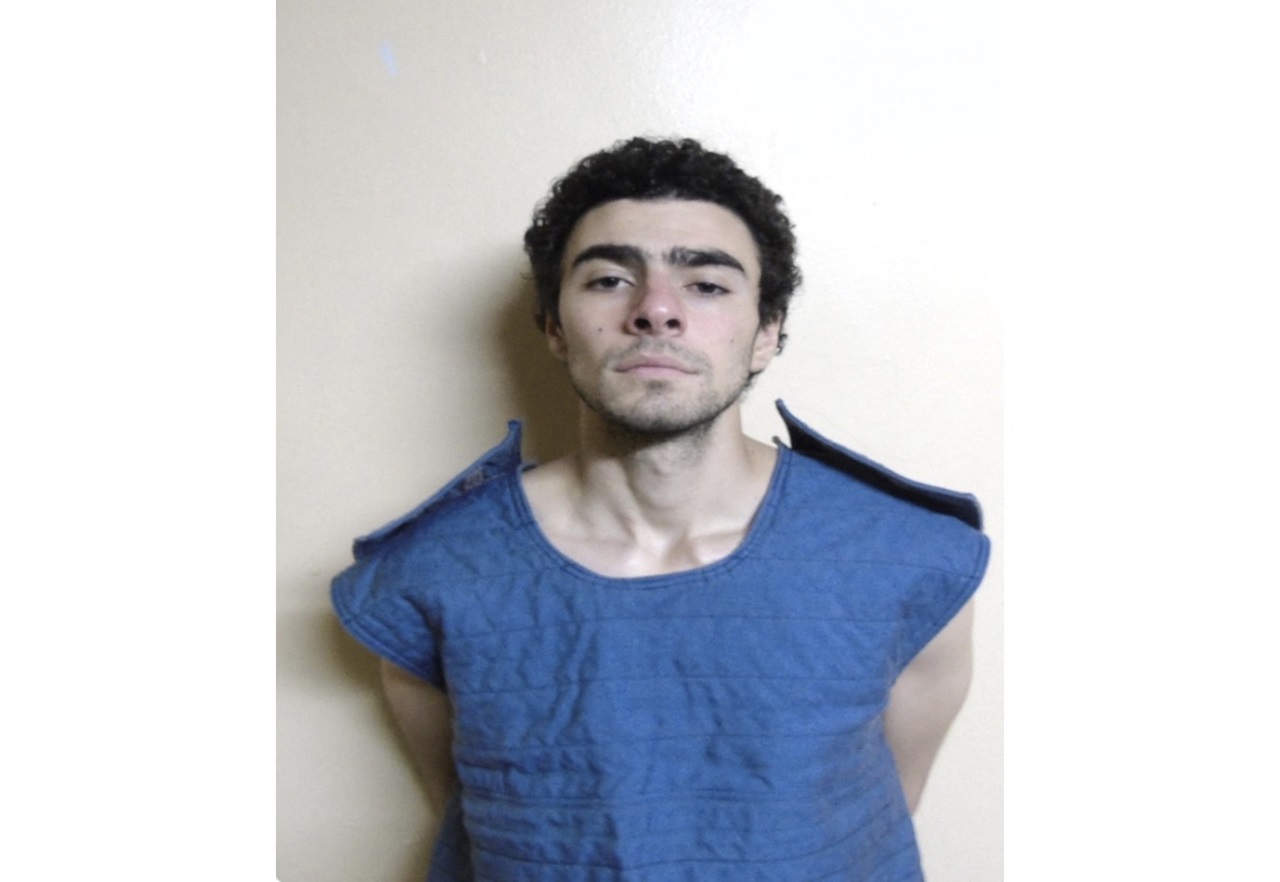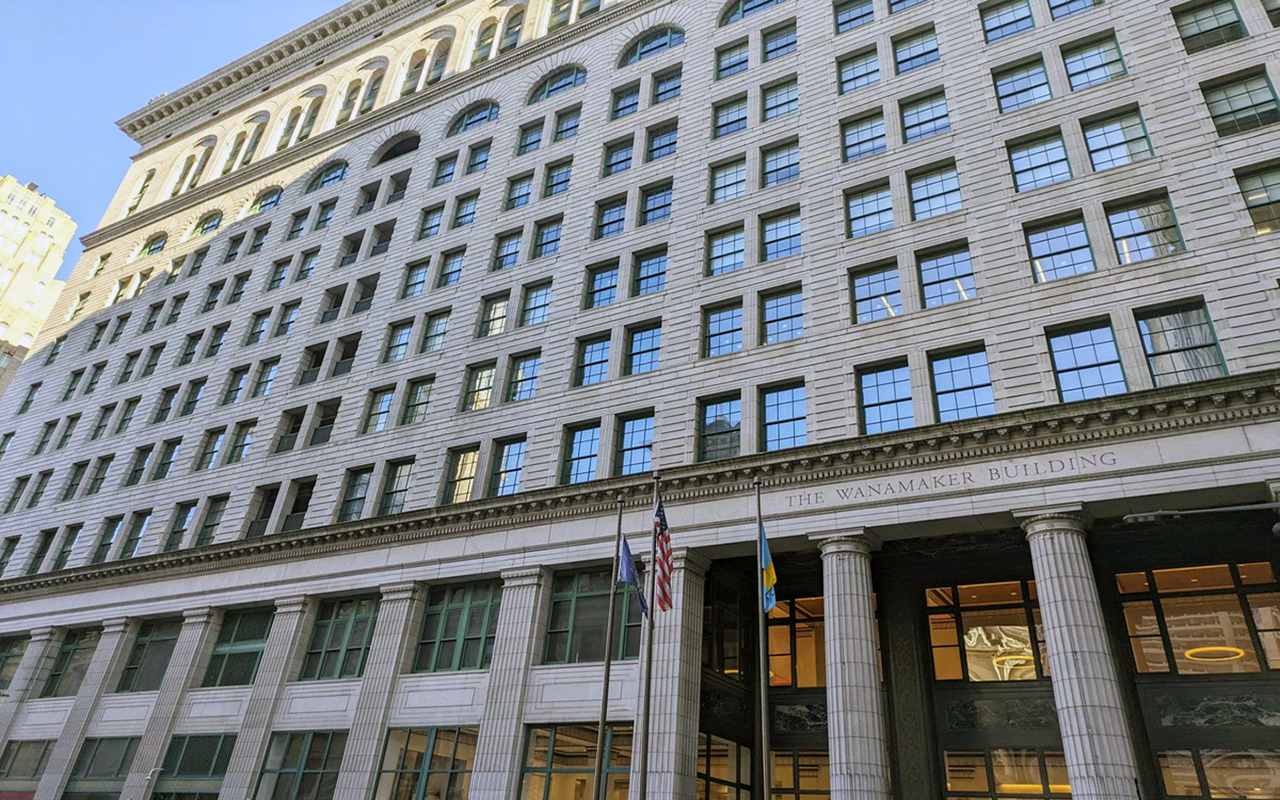
“We’re not a sanctuary city”: Philly’s defense against DOJ
City Solicitor Sozi Pedro Tulante responded to the allegations made by General Attorney Jeff Sesions against 9 jurisdictions considered as "sanctuary cities"…
Though Philadelphia may be considered the “City of Brotherly Love” in which it is not uncommon to embrace one’s neighbor or even provide much-needed support through rough times, it’s hard to view it as a sanctuary.
In a place where ICE can still stop you, the stop-and-frisk policies have resulted in greater policing of black and brown communities, and crime rates are still high, to envision the city as a place of refuge would require one to turn a blind eye to the many things happening in this “sanctuary city.”
And yet, despite efforts from Mayor Jim Kenney to speak of Philadelphia as a “4th amendment” city that prohibits unlawful search and seizure, Philadelphia’s “sanctuary” status has been the topic of debate and a high priority of United States Attorney General Jeff Sessions and the Department of Justice.
As covered previously in a report from AL DIA News, the Department of Justice issued a letter to Philadelphia and 8 other cities forcing them to prove that they comply with 8 U.S. Code 1373 that states that no city or state can withhold immigration data from the federal government.
The letter from the Department of Justice, though brief, stated that a lack of compliance could result in a loss of $1.67 million of federal funds coming to the city via the Justice Assistance Grant (JAG) award that is used to train and pay the overtime of dedicated local law enforcement.
Philadelphia’s response was immediately defended by local officials including City Solicitor Sozi Pedro Tulante who said, “In practice, Philadelphia’s policies result in information-sharing with the federal government about criminal suspects or detainees in the City’s custody.” He went on to say, “And in the protection of confidential information about individuals who are of no criminal concern.”
Addressed to Tracey Trautman, the Acting Director of the Bureau of Justice Assistance and the Office of Justice Assistance the letter begins with a statement in exactly how the grant has helped the city’s local police force and proving how vital the money is to the city. The letter states, “In 2016, property crimes were at their lowest since 1971, robberies were at their lowest since 1969, and violent crime was lower than at any point since 1979.” This is no small feat considering Philadelphia’s history with crime.
But after demonstrating the need for the grant, the city builds on the idea that Philadelphia is indeed a safer city, including in the ways it complies with Section 1373 of Title 8. By highlighting that the mandate only requires that the city cooperate with Immigration and Customs Enforcement officials, the city asserts that it complies by default and in action.
The letter asserts that by not actively collecting immigration data, the city complies with the code because it does not require city law enforcement inquire about the status of its inhabitants immigration processes.
This idea is further supported by the admission of the city that it does not gather the immigration information of innocent parties and of criminals, it is willing to share the information with immigrations enforcement as it has it.
RELATED CONTENT
The policy in question that seems to be uncovered by the mandate chosen by the department of justice is Philadelphia’s decision to not honor ICE detainer requests. The city asserts that the decision does not affect it’s ability to share the information that it does have on immigrations statuses with the federal government, despite refusing to hold individuals without a warrant.
Focusing on Executive Order No. 8-09 entitled, “Policy Concerning Access of Immigrants to City Services,” the law was enacted in November of 2009 by former Mayor Michael Nutter and ensures that any person should have access to city services without fear for their own safety or fear of deportation due to an inquiry about their immigration status. The services include health care, public school services, child welfare and more.
The second key city document that pertains to the city’s policy is Memorandum 01-06 that mandates how police interact with public regarding their immigration status. Issued by former Police Commissioner John F. Timoney in May 2001, the mandate prevents police from inquiring about immigration status during the course of their work, again to prevent the creation of a culture of fear surrounding getting access to city services and in this case, law enforcement services.
The city maintains that the basic premise of Section 1373 is the prevention of cooperation with federal customs enforcement and that the city does in fact comply because it actively refuses to collect said information unless in a criminal situation.
The Department of Justice has yet to respond to Philadelphia directly in reference to the JAG grant but since the city met the requirements of the June 30 deadline, it has to wait for legal approval from the federal government.











LEAVE A COMMENT:
Join the discussion! Leave a comment.